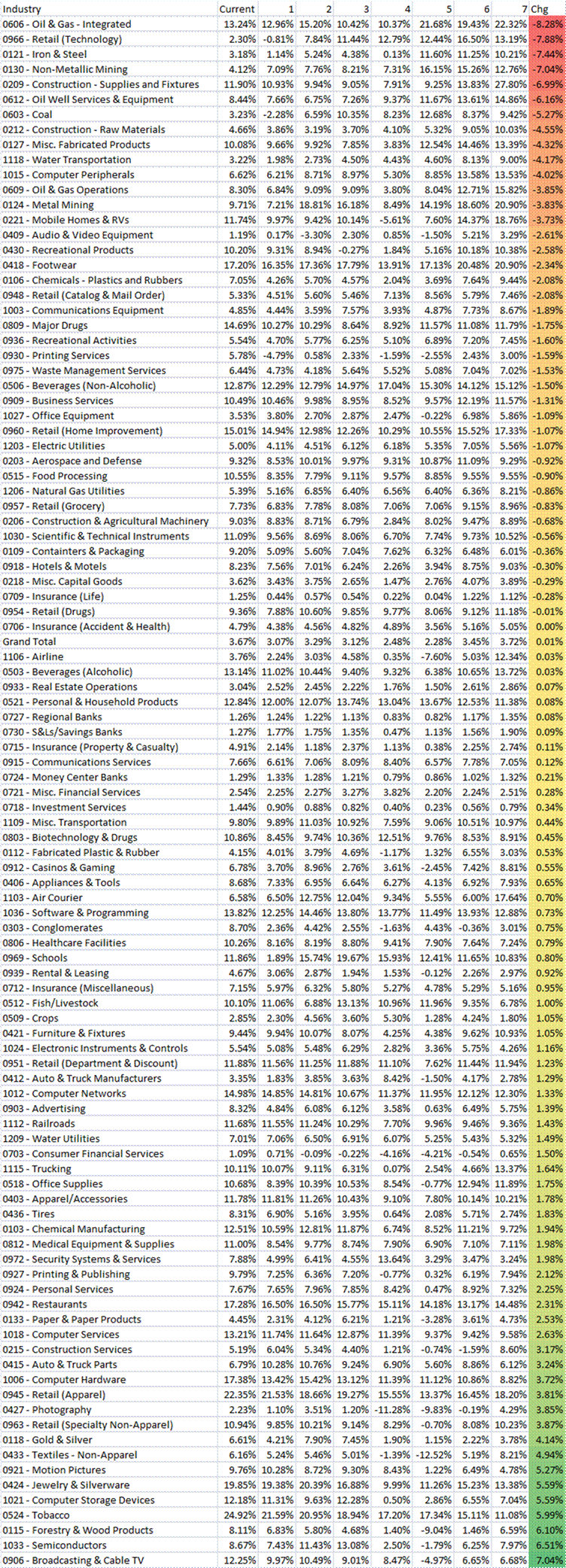I was traveling most of yesterday on an odd bit of Church business, but I am back home now, late as it is.? I listen to the radio as I travel to meeting like this, and much of it reminds me of why I don’t like many aspects of talk radio.
- Arguments that don’t take into account the complexity of the issues
- Advertising that may cheat your hearers
- Arguments that assume the worst of your adversaries
- Callers that are sycophants
- Views that are too cynical.? Don’t assume a conspiracy when mere incompetence will do it.
Today, I heard a lot of odd things, but one hit me hard because it is what I do.? I caught a small part of Dave Ramsey’s show, where he was ignorantly criticizing stock-pickers like me, that we can’t outperform the S&P 500 or a growth stock index fund (which is easier).? He further criticized concentrated portfolios, saying that they were far too risky, saying that you had to have at least 100 stocks in a portfolio to achieve diversification.
Now, fellow Christians often ask me what I think of Dave Ramsey, and I often say to them that his emphasis on paying down and avoid debt is a good one, but that he doesn’t have much to say beyond that.? Now, that’s my perspective from listening? to snippets over the years.? I don’t claim to understand him fully, but after listening to him, I can’t get what the thrill is — it is all rather basic.
But then, basic is what most people need, and that is why cash & debt management is the first priority for most people.? Many of my personal finance articles deal with that.
Ramsey is out of his league when trying to opine on whether concentrated portfolios offer value of not.? There are two philosophies here:
- Don’t put all of your eggs in one basket
- Put all of your eggs in one basket, and watch that basket like a hawk.
These two philosophies show the tradeoff of diversification for knowledge.? From an interview with Marty Whitman in Barron’s:
Why do you prefer to run funds that are concentrated, rather than diversified? And how do you protect against risk when you do this?
We get protection by being price-conscious and by being extremely knowledgeable about our holdings. And diversification is a surrogate?and a [very] poor surrogate?for knowledge, elements of control [of a company] and price-consciousness. If you are really a value investor and do deep research, how many investments can you be involved in at the same time? If you are a high-frequency trader, you could trade 100 securities today. The real value investors are lucky if they can do 10 investments at a time.
The idea is that value investors gain detailed knowledge of companies that they invest in.? That takes time and effort, so they limit the number of companies that they invest in.? The idea is to do so much research, that you have an information advantage over 99% of the market.? It pays off.
Buffett himself wrote an article called, “The Superinvestors of Graham and Doddsville [PDF],” which was published in Hermes [Columbia Business School], and republished as a forward to later versions of “The Intelligent Investor.”? Most of the “Superinvestors” ran concentrated portfolios by today’s standards.? Some were highly concentrated — the one common thing among them is a value style that focuses on a margin of safety to avoid large losses, and purchasing shares of companies whose assets are out of favor, where a bargain price can be obtained.
Now not everyone is cut out to be dispassionate about investing, treating it like a business where you are trying to buy safe assets cheap, and sell them dearly when they come back into favor.? You often look wrong before you are right.
I myself run a concentrated stock portfolio, 36 stocks at present with significant industry concentrations in energy, insurance, and technology, and have done well versus the S&P 500 over the last 13 years.? I think this is considerably less risky than buying an S&P 500 index fund, much less a growth stock index fund.? The value stock index fund?? That’s a good option for those wanting passive equity exposure.? On the whole, I like what I do better.? My portfolio never looks like the index.
If you own actively managed funds, though, particularly large cap funds, take a look through them, and see if they look like an index fund to you (but with much higher fees).? The term is called “active share.”?? How different are they from an index fund? Look for funds that do it differently, and have succeeded in the process.? That’s what I do for friends when I look over their actively-managed mutual funds.
All for now.


